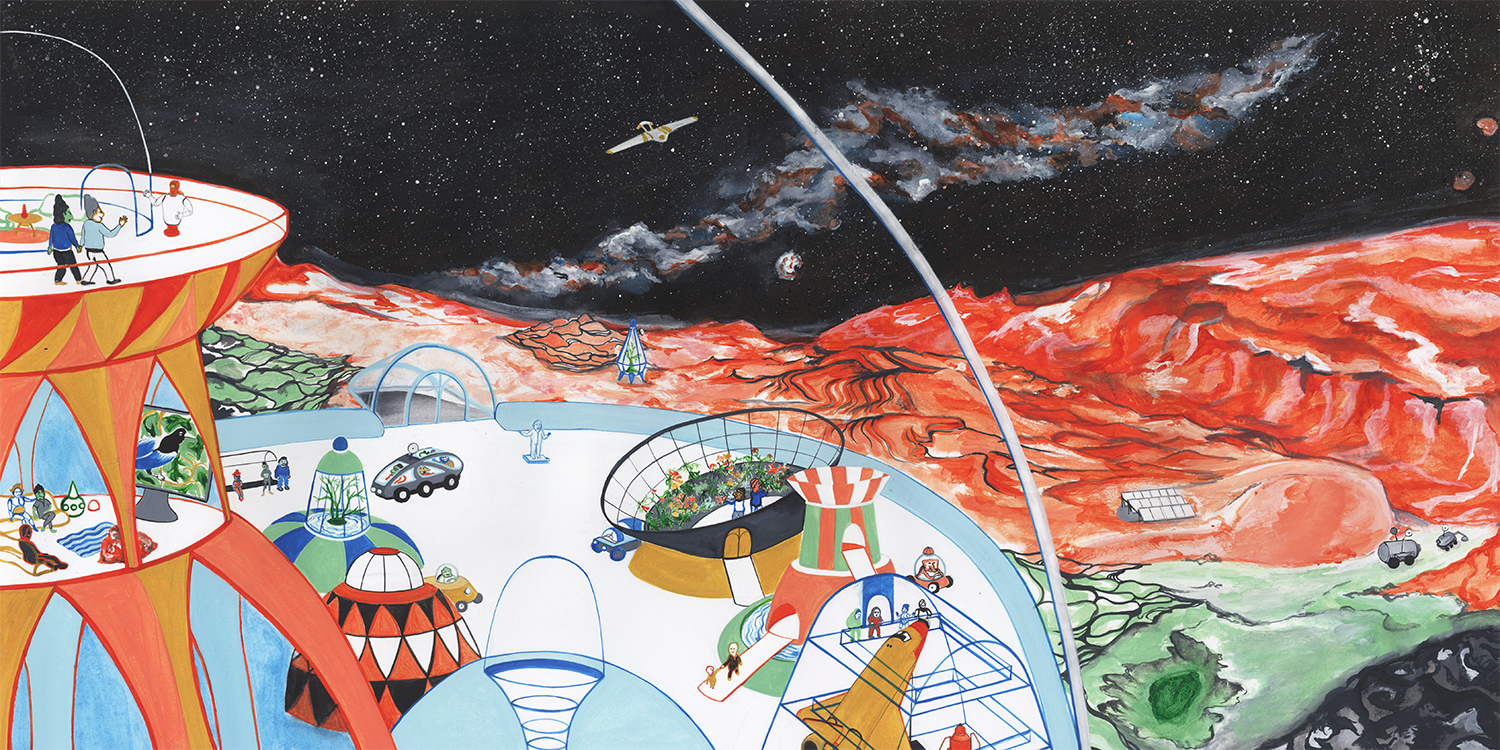
Anyone who’s seen a few sci-fi films or TV shows knows that living in space has been a dream for generations of people on Earth. But while fictionalised versions of ourselves might be able to thrive in the unfathomably harsh environment of outer space, real humans have got a whole lot to think about before we begin to consider colonising the great unknown.
That doesn’t mean it won’t ever happen—it just means we’ve got some preparing to do. Here are a few of the absolute necessities we’ll need to think about before blast off.
A massive spaceship
Rather than setting up camp on Mars or the moon, many scientists recognise that we’d be better off living on a gigantic spacecraft for our first foray into space colonisation.
One of the main reasons for this is that while you cannot easily control the amount of gravity on a planet like Mars, you could feasibly simulate the effects of gravity by building a rotational device into a spaceship, spinning the entire colony at a precise speed to create pseudo gravity.
This can be compared to the force you feel pushing you against the side of a car when it turns a corner quickly. If the amount of rotational movement is controlled, then space inhabitants could quite happily exist in a gravitational environment similar to that on Earth, allowing things like bone-density and muscle strength to develop normally.
Of course, the odd zero-gravity environment would still be an awesome perk of life in space—who doesn’t want to float around doing somersaults and recreating fight scenes from The Matrix?
Tons and tons of soil
There are incredibly high levels of radiation found in space, so it would be necessary to cover the first settlement outside of Earth in a huge amount of natural matter to defend against the constant presence of cosmic rays and solar flares.
Experts suggest that this would probably be lunar soil, specifically around five tons of it for every square metre of the spaceship’s hull. That way, our space explorers will be protected against the super-cancer they’d otherwise develop from being outside the Earth’s protective atmosphere.
In an unprotected settlement on Mars such as Matt Damon’s home in The Martian, inhabitants would probably die from cancer quite quickly indeed.
Endless recycling
With limited resources in outer space, recycling will be crucial to maintain the necessary levels of oxygen, water and other materials in a settlement.
Artificially recycling water was problematic in the dark ages, leading to widespread disease such as the notorious ‘black death’. However, with modern advancements it is possible to remove contaminants from wastewater, creating a product cleaner than the most pristine sources on Earth.
So if you plan on moving to space for good, get used to the idea of drinking your own pee. Delicious, purified, entirely-drinkable pee.
Space laws

People living in space will technically be outside the borders of any established nation, and therefore free to do what they want. That potentially means anarchy, which most people will agree isn’t a particularly good idea for our planet’s first society of intrepid space explorers.
Current international space treaties say that no nation can claim land or resources beyond Earth, making it impossible to mine for abundant materials found on asteroids and moons. These resources could eventually become crucial to the survival of humans in space. Earthlings are therefore going to need to establish some kind of mega galaxy-wide legal system if space colonisation is something we’re planning on achieving.
A new way to measure time
Humans have learned to rely on the concept of time. Our bodies’ circadian rhythm is set to work around a 24-hour day, telling us when to sleep, wake up, eat and engage in other basic functions. Switching things up from this 24 hour system can be seriously detrimental to our health—think of it as an extreme form of jet lag that would mess up our minds and bodies, let alone our diaries.
Other planets don’t have the same 24 hour days and 365 day years that humans do. Jupiter has 10 hour days, while Venus doesn’t see the sun set for an equivalent of 243 Earth days. Assuming we could even inhabit these uninhabitable planets, it would pose a heck of a problem for our society’s understanding of time. If colonising another planet becomes the ultimate goal of space travel, then we’ll certainly have to get to grips with this brain-bending problem, and others we don’t even know about yet, out there in the vast star-studded blackness of outer space.
[geoip-content not_country=”CA”]
Want to see more of the infinite grandeur of space? Check out Cosmic Journeys: How Large Is the Universe? now playing on our video streaming service.
[/geoip-content]
